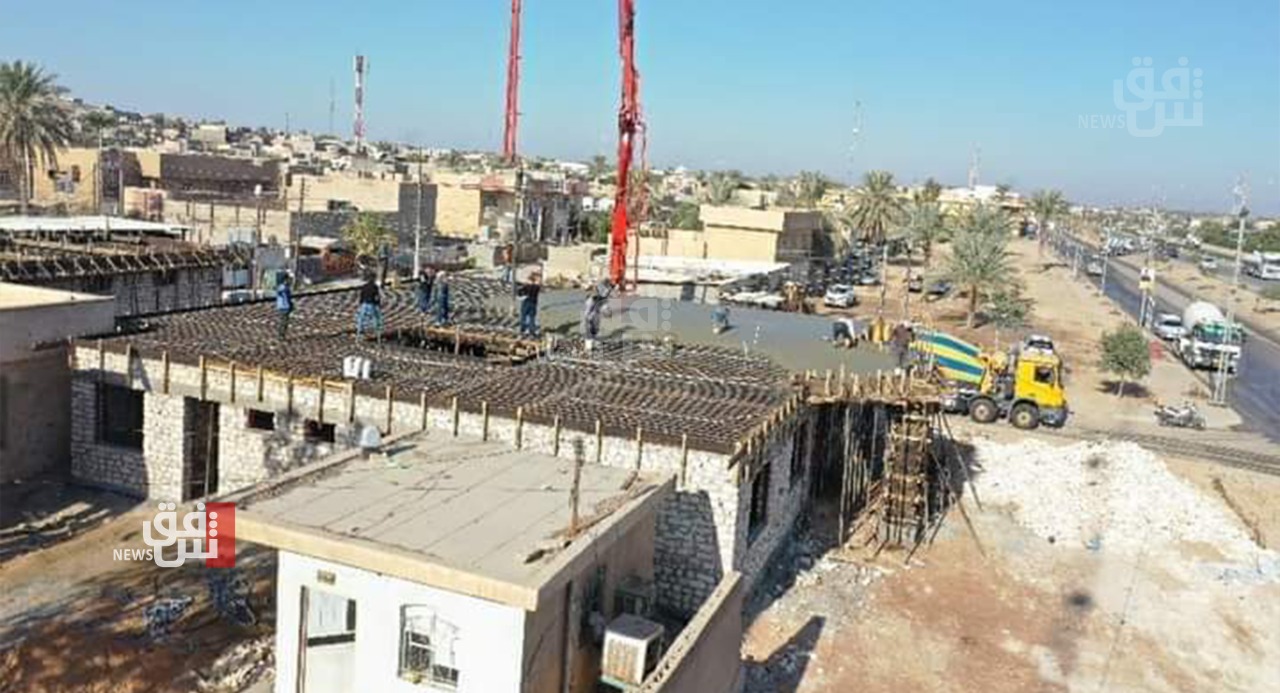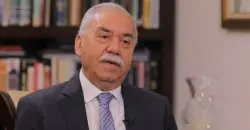Navigating economic challenges: overcoming legal hurdles in Iraq's path to prosperity

Shafaq News / With the passage of more than two decades since the overthrow of the previous regime, Iraq continues to grapple with the lingering effects of outdated laws and bureaucratic hurdles that impede its economic advancement.
Despite the efforts of successive governments to foster growth and encourage investment, the persistence of these obstacles poses significant challenges to both local and foreign investors.
Against this backdrop, voices within the business community are calling for a concerted effort to modernize legislation, streamline administrative processes, and enhance governmental support for economic initiatives.
In this regard, Jordanian businessman Hassan Ismik told Shafaq News Agency, "Iraq has witnessed active movement in improving services and infrastructure since Prime Minister Mohammed Shia Al-Sudani's government assumed office. It has adopted a program comprising a series of reforms and short- and long-term objectives, garnering praise domestically and internationally for its achievements across various sectors, particularly healthcare, education, and other services."
He added, "The current government's approach is geared towards service development, as evidenced by Baghdad's remarkably good bridge and road projects, contributing to resolving a protracted crisis. I believe this government knows what it wants."
Ismik emphasizes, "To ensure sustainability and build upon what the government has achieved and offered in various sectors, there is a need to delve deeper into reforms, specifically establishing a unified national identity for Iraq and a workshop for legislative amendments to rid itself of legacies from the previous regime, estimated by my assessment to exceed three thousand legislations, replacing them with modern ones."
He asserted, "Legislative reforms must support Iraq's openness to the world, enhancing its economic competitiveness among leading regional economies. Therefore, Al-Sudani must commence the development of legislation and laws, facilitating procedures for obtaining investment licenses and ensuring the vitality of financial transfers to and from Iraq to increase the pace of entry for foreign investment companies into the country to execute various service, investment, commercial, and industrial projects."
He pointed out that "businessmen and investors face several obstacles due to outdated legislation that does not align with the government's inclination towards foreign investments and making the Iraqi private sector a fundamental partner for the government in advancing various service, industrial, and other sectors. These legislations often hinder many projects."
Previously, Hussein Al-Saabri, a member of the Parliamentary Investment and Development Committee, stated in an earlier statement to Shafaq News Agency, "Investment in Iraq faces obstruction from ministries, departments, and state institutions, including the problem of obtaining approvals from the Ministry of Industry to establish industrial plants," emphasizing the "necessity of government support for projects and investments to employ local labor and utilize funds within the country instead of channeling them abroad."
Revision of laws
Economists emphasize that Iraq's investment and private sector laws are "outdated," with the Customs Law dating back to 1983.
According to economic expert Mustafa Al-Faraj, while some provisions are deemed "excellent," others require review as they hinder investors and the private sector.
Al-Faraj explained that "investors face several legal obstacles, including land issues and the need for approvals from ministries of environment, industry, agriculture, as well as provincial and municipal authorities, all of which impede investment."
He pointed out that "the current law dates back to pre-2003 when the country was isolated from neighboring states and external investments. After 2003, investment opened up to neighboring countries and the world, necessitating reconsidering these laws in light of the current circumstances."
Al-Faraj stressed that "involving the private sector in investments is crucial to make it a supportive, partnering force for the government, moving away from the inefficiencies and hurdles faced in domestic and international goods transportation, which have led to exaggerated prices in construction and real estate."
Iraq is not "investment-friendly"
On the other hand, economic expert Abdul Salam Hussein contends that "Iraq cannot be considered an investment-friendly country because the government allocates land to investors for undisclosed amounts.
For instance, an investor constructs residential apartments with prices up to $300,000, whereas for a quarter of this amount, a citizen could purchase a 100-square-meter house. Despite the government offering loans equivalent to 100 salaries or 100 million dinars, the prices of apartments remain exorbitant."
Hussein emphasized that "based on the foregoing, investment projects in Iraq are futile and not in the interest of citizens because there is no proportionality. The price of houses is cheaper than that of an apartment on the tenth floor. Hence, investments only benefit well-connected, influential investors affiliated with major political parties."
Economic revival
The laws governing the private sector and investment represent one of the most significant obstacles hindering the development of the private sector and investment in Iraq. These laws have been formulated to serve political entities and their economic offices, creating a scenario where the private sector becomes monopolized by specific entities at the expense of others.
As a result, the private sector's contribution to the Gross Domestic Product (GDP) remains minimal, and its inability to attract substantial foreign investment is primarily limited to the oil sector.
According to economic researcher Omar Al-Halbousi, "the unsuitable laws for the private sector and investment have led to a considerable decline in the private sector's growth, inability to generate significant employment opportunities, and its monopolization by partisan entities. This situation has harmed the Iraqi economy, maintaining its rentier structure, which poses a considerable risk to Iraq and its people."
"Furthermore, Iraq requires more diversified investments in agricultural and industrial sectors. However, the current investment law serves as a significant obstacle to investors, rendering Iraq an unattractive investment environment."
He clarified that "the Arab Investment Guarantee and Export Credit Corporation ranked Iraq last among Arab countries, indicating its unfavorable investment climate, necessitating substantial legal reforms. Moreover, the World Bank ranked Iraq 172nd out of 190 countries in its Ease of Doing Business Index, demonstrating significant hindrances to investors and challenges in obtaining licenses."
Investment deterring laws
Al-Halbousi emphasized that "the laws governing the private sector and investment have contributed to stifling Iraq's economic resurgence. These laws deter investors and impede the private sector, resulting in a significant economic downturn."
"This downturn has exacerbated unemployment rates, limited the diversification of the state's revenue sources, and heightened the impact of any economic or political shock, whether local or regional."
He continued, "These laws were crafted to favor specific factions aligned with the ruling parties, posing a grave threat to Iraq."
According to Al-Halbousi, "this situation poses a significant danger to Iraq because the failure to activate investment and the private sector to move beyond the reliance on oil and transition towards industrial and agricultural diversification will hinder the country's economic revival."
"The International Monetary Fund had recently warned Iraq of the peril of its continued reliance on oil and mandated the necessity of revitalizing the private sector and investment. Maintaining the current status quo poses both financial and economic risks, ultimately leading Iraq toward imminent collapse."
Concluding his remarks, Al-Halbousi stressed the "urgency of optimally reforming the investment and private sector laws to revitalize these crucial sectors. Failure to do so would mean perpetuating the economic decline, ultimately leading to significant economic and financial collapse."





